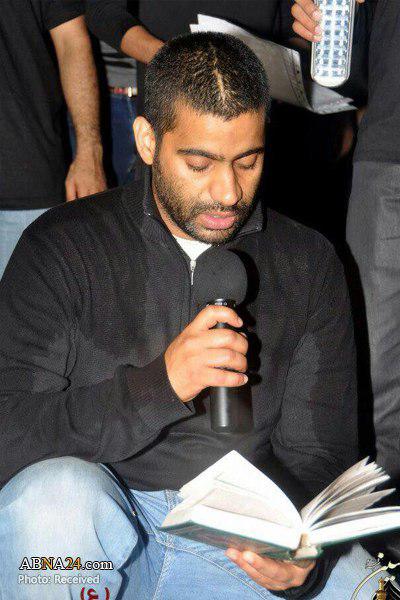On Wednesday, a series of video footage circulating on social media websites showed Saudi troops, equipped with heavy weapons, waging a new offensive against Awamiyah, located some 390 kilometers northeast of the capital, Riyadh.
Several homes, business and historical have been totally destroyed or partially damaged after Saudi forces shelled al-Jamima neighborhood and al-Mosara, the old quarter of the town of Awamiyah.
A Shia resident identified as Mohsen el-Aojami lost his life after he was sprayed with bullets by Saudi forces.
There are reportedly at least one Indian migrant worker killed.
Main entrances to the region have been closed and the regime forces have imposed heavy restrictions on movement of the citizens.
Residents have been forced to stay indoors as the regime has deployed snipers across the entire region.
The Riyadh regime forces in riot gear have also set up barricades and security checkpoint to prevent people from organizing any gathering or protest rally.
Local residents complain that police deployed at the checkpoints are snatching and stealing their personal belongings.
Authorities also shut down internet and mobile services across the area.
Earlier reports said that garbage has piled up as Saudi forces continue to prevent relevant authorities from collecting trash across several areas.
The developments come as a fierce crackdown on protesters there enters its 76th day.
Dozens of civilians have lost their lives in the ongoing heavy-tactic crackdown by the Riyadh regime since then.
Security forces equipped with heavy weapons have been deployed in Eastern Province's Awamiyah since May 10, following fierce clashes between the regime forces and locals protesting against the destruction.
On May 24, UN experts criticized the ongoing attempts to demolish Mosara and accused the Saudi kingdom of erasing cultural heritage, violating human rights, and forcing residents to flee their homes.
According to a statement issued by the Office of the United Nations High Commissioner for Human Rights, Karima Bennoune, the UN Special Rapporteur accused Saudi security forces of "irreparably burning down" historic buildings and forcing residents to flee their homes.
Bulldozers escorted by heavily armored military vehicles have demolished several houses, business and historical sites across the Shia-majority region over the past few weeks.
A number of human rights groups and activists have expressed deep concern about the living conditions of people in Awamiyah who are suffering from a severe water shortage and are using private generators to produce electricity.
Also in late May, a Saudi court handed down death sentences to over a dozen young Shia activists from the restive Qatif region, which has been the scene of peaceful protest rallies against the ruling Al Saudi regime in recent years.
Eastern Province has been the scene of anti-regime protests since early 2011. Riyadh has stepped up security measures in the Shia-majority region. Protesters want freedom of speech, the release of political prisoners, and an end to economic and religious discrimination exercise by authorities.
Demonstrations intensified in the province after the January 2016 execution by the regime of respected Shia cleric Sheikh Nimr al-Nimr. The protests have been met with a heavy-handed crackdown by the regime.











